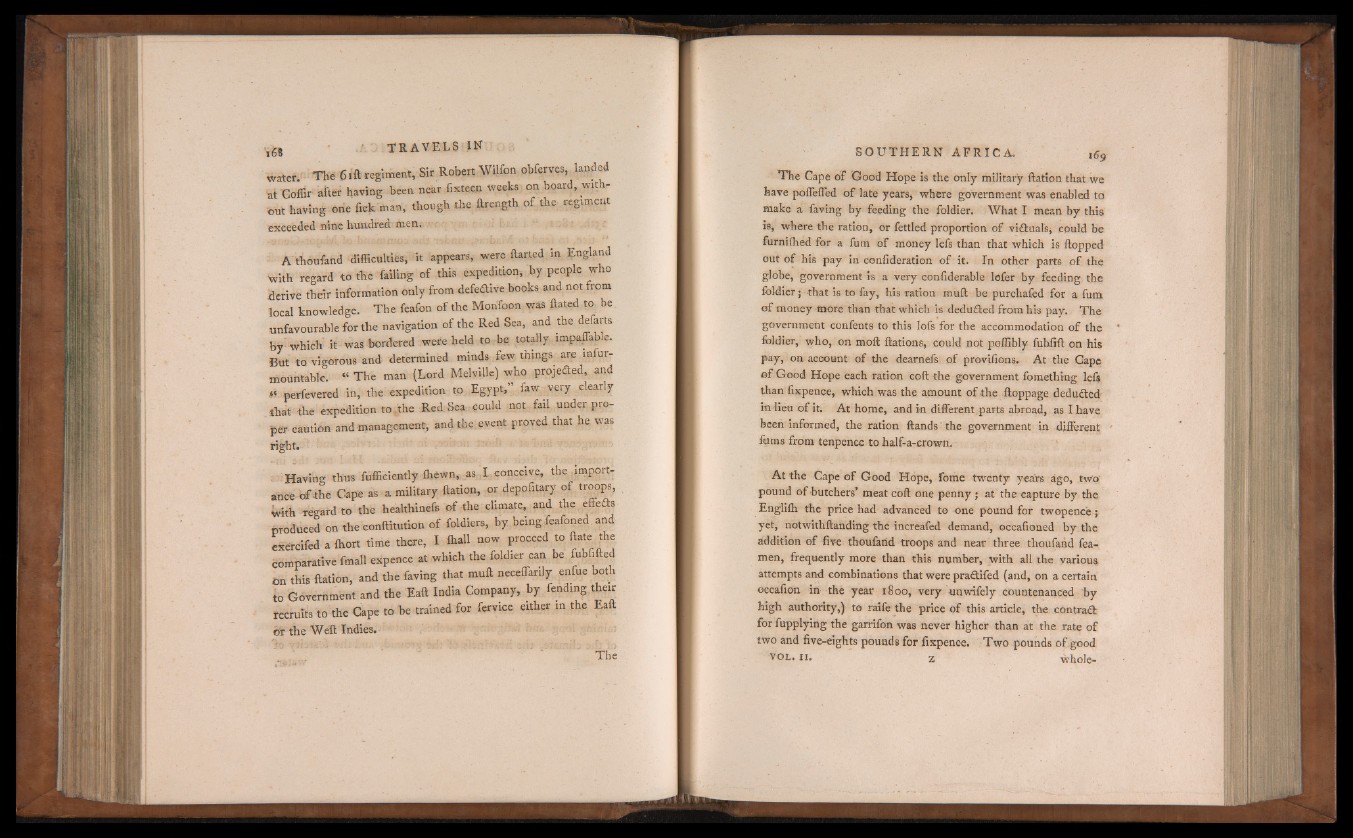
water. The 6ift regiment, Sir R o b e r t Wilfon obferves, landed
M 'Coffir after having been near fixteen weeks on board, without
having one fick man, though the ftrength of the regiment
exceeded nine hundred men.
A thoufand difficulties, it appears, were ftarled in England
with regard to the failing of this expedition, by people who
derive their information only from defedive books and not from
local knowledge. The feafon of the Monfoon was ftated to- be
■unfavourable for the navigation of the Red Sea, and the defarts
by which it was bordered were held to be totally impa.fihble.
But to vigorous and determined minds few things are mfur7
mountable. “ The man (Lord Melville) who projeded, and
« perfevered in, the expedition to Egypt,” faw very clearly
that the expedition to .the Red Sea could not fail under proper
caution and management, and the; event proved that he was
right.
Having thus fufficiently fhéwn, as I conceive, the importa
n c e o f the Cape as a military ftation, or depofitary of troops,
with regard to the healthinefs of-the climate, and the effeds
produced on the conftitution of foldiers, by being feafoned and
exercifedaihort time there, I ihall now proceed to ftate the
comparative fmall expence at which the foldier can be fubfifted
on this ftation, and the faving that muft neceffanly enfue both
to Government and the Eaft India Company, by fending their
recruits to the Cape to be trained for fervice either in the Eaft
or the Weft Indies.
Thé
The Cape of Good Hope is the only military ftation that we
have poflefled of late years, where government was enabled to
make a faving by feeding the foldier. What I mean by this
is, where the ration, or fettled proportion of vidualsj could be
furnifhed for a fum of money lefs than that which is flopped
out of his pay in confideration of it. In other parts of the
globe, government is a very confiderable lofer by feeding the
foldier ; that is to fay, his ration muft; be purchafed for a fum
of money more than that which is deduded from his pay. The
government confents to this lofs for the accommodation of the
foldier, who, on moft ftations, could not poffibly fuhiift on his
pay, on account of the dearnefs of provifions. At the Cape
e f Good Hope each ration cofl: the government fomething lefs
than fixpence, which was the amount of the ftoppage deduded
in lieu of it. At home, and in different parts abroad, as I have
been informed, the ration ftands the government in different
foms from tenpence to half-a-crown.
At the Cape of Good Hope, fome twenty years ago, two
pound of butchers’ meat coft one penny ; at the capture by the
Englilh the price had advanced to one pound for twopence ;
yetj notwithftanding thé increafed demand, occafioned by the
addition of five thoufand troops and near three thoufand Teamen,
frequently more than this number, with all the various
attempts and combinations that were pradifed (and, on a certain
occafion in the year 1800, very unwifely countenanced by
high authority,) to raife the price of this article, the contrad
for fupplying the garrifon was never higher than at the rate of
two and five-eights pounds for fixpence. Two pounds of.good
v o l . 11. z whole